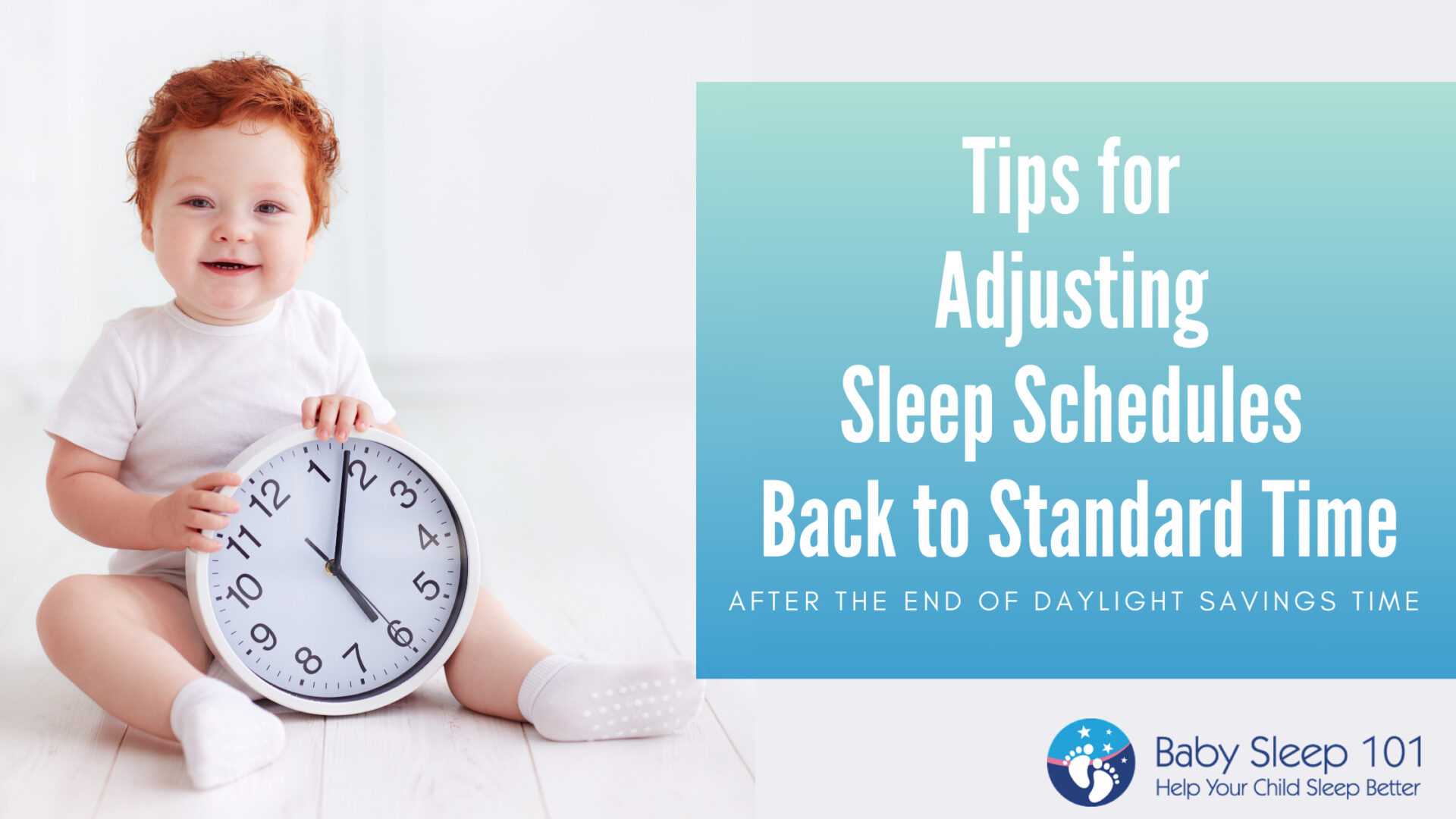Every year around this time, parents of young children begin to worry. The first Sunday in November brings about the end of Daylight Savings Time when we turn the clocks back one hour. For most people this is an enjoyable time and one to look forward to, as the prospect of having an ‘extra’ hour to sleep is a welcomed thought.
However, if you have a child who is waking early, the approaching return to Standard Time can strike fear in the hearts of even the calmest parent. Suddenly a child, who is waking at the somewhat still manageable hour of 5am, will now be starting the day at the unholy hour of 4am. Other than taking advantage of the new waking and becoming a baker-what’s a parent to do?
Determining A Cause For The Early Wakings
The first step is to figure out why your child is waking up early. So how early is too early? It’s biologically appropriate for most children to wake naturally between 5:30am (don’t worry, this is actually quite rare) and 7:00am. Anything earlier than that usually indicates that there is an issue causing the waking.
- Over-tiredness-The number one reason why children wake before 6:00am is that they are overtired at bedtime. If this is the case in your child, then you need to look at their overall routine and ensure that they’re getting the right amount of naps in the day and that bedtime is early. If you get them on a good routine ahead of the time change, then it will make the transition much easier to deal with.
- Hunger-If you have a baby under 9 months, it may be possible that they are hungry and need a feed. If you feed them and they don’t go back to sleep, then see reason one.
- Discomfort-If your child is sick or experiencing physical discomfort such as teething, wet diaper, too hot or cold, then this can also trigger a wake up at this time.
- Outside noise-In the early morning hours, we all are in the lightest stages of sleep and can be disturbed by outside noise more easily than during the earlier part of the evening. Anything that you can hear-garbage trucks, birds, street traffic may also be triggering a wake up.
My Child Isn’t Overtired, Hungry, Uncomfortable and We Have A Sound-Proofed House.
We Have Good Thing Going And I Want It To Stay That Way!
If this is you, then first, congratulations! You can pick from the following three options to ease the transition.
1. Do nothing!
Yay! This is obviously the easiest option. You just let nature and biology take over by following the new time right away. Our internal clocks or circadian rhythms are dictated by the amount and timing that our brains perceive light and your little one will adjust in a few days. This is why adults eventually adjust to Daylight Savings and time zone changes as well.
If you have a child who is very sensitive to getting overtired, then they may need an earlier bedtime for several nights after to help compensate for the time difference. For instance if your child was going to bed at 7 previous, their body will be ready for bed at 6pm. On the Sunday you may need to have them in bed at 6:00pm, but you can move that ahead by 15 minutes every night after that.
2. Do Something! Shift Forward to Fall Back
Option One
This works well for children who are able to go with the flow, but a word of warning that it may make things worse for others. Start 4 days before the time change occurs and move your child’s entire routine ahead 15 minutes every day. Not just sleep periods but meals, wake up and playtime as well. Our bodies respond to cues (remember Pavlov’s Dog?) so everything must move 15 minutes ahead each day in order to help the body shift. This also means that you need to leave your child in their bed after they wake up from naps and in the morning because it’s unlikely that they will automatically sleep in longer immediately.
Shift Forward to Fall Back
Option Two
This route takes a bit more time, but can help those children who get overtired easily. For this option you would begin about a full week before the time change and allow for some days of no shifting at all. This gives the child’s body a chance to catch up before being moved forward again. The downside is that you can’t control the wake up and they will likely continue to wake at the same time for a while. To increase the chances of success, it’s important that you leave your child in their bed longer, even if they continue to wake at the regular time. But if you want to try it, here’s an example;
Let’s say your 18 month old currently has this routine:
Wake up 6 am, Nap -12:30pm-2:30pm, Bed 7:00pm
Day 1-move 15 minutes ahead,
Wake up at 6am, nap 12:45pm-2:45pm (if they wake earlier, leave them until this time), Bed 7:15pm
Day 2-Repeat Day 1
Day 3-Move another 15 minutes ahead
Wake up 6 am (most likely still 6am, but leave until 6:30am), nap 1:00pm and leave in bed until 3:00pm, Bed 7:30pm
Day 4-Repeat Day 3
Day 5-Move Ahead
Wake Up-6:15am (but again leave them until 6:45am) Nap at 1:15pm-3:15pm, Bed 7:45pm
Day 6- Repeat Day 5
Day 7-Move Ahead
Wake up 6:30am (but leave until 7:00am), Nap 1:30pm-3:30pm, Bed 8:00pm
Day 8 Time Change and you’re now following the new time
If you’re trying this option, just like in option one, it’s important to move the whole day forward-including meal times and activity times.
3. Somewhere in Between
This option is a middle of the road approach between not doing anything at all and trying to shift each day incrementally.
For this choice, you would follow the clock time but once the time change occurs you would be flexible with their whole routine for the following week. So in essence, instead of moving the routine forward before the change, you are doing it after the change, but watching your child for cues. For the first few days you may only be able to move the nap forward but bedtime needs to stays early because your child is showing tired cues. Or it may be the other way around. Either way, you would move only as much as your child can handle. Once again, it will take about a week for them to adjust.
These are a few options you have to help with the time change. If you find that after a week, your child’s routine hasn’t settled, then Baby Sleep 101 is always here to help you with a customized sleep plan to tackle those persistent sleep problems.













[…] Twitter […]